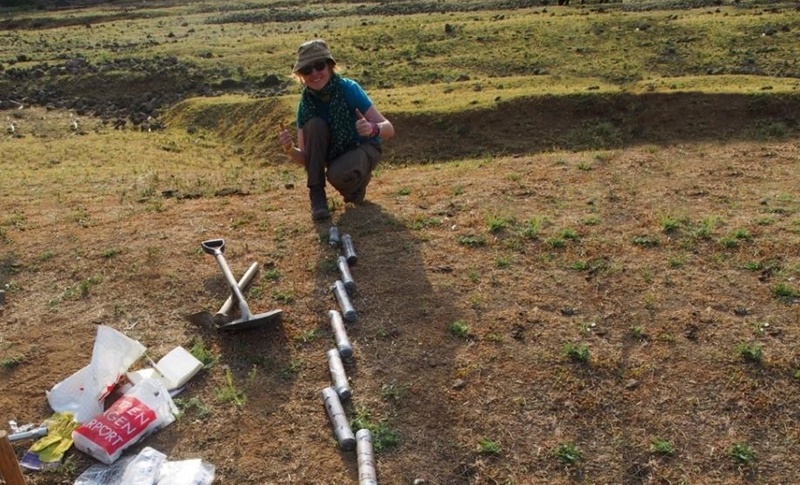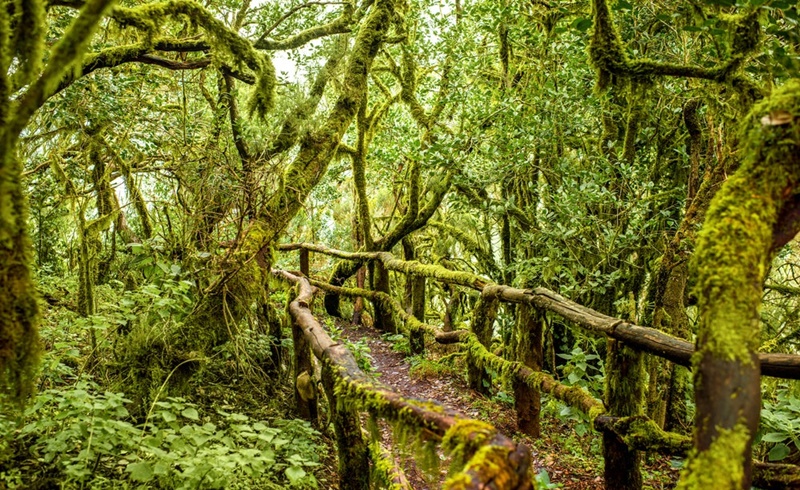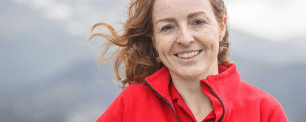Sandra Nogué, a constantly expanding scientist
The main lesson she has learned after 12 years of promoting research, teaching and collaborating with international and multidisciplinary teams is that the protagonists of science share a radical will to contribute.
“In the world we are surrounded by people who are highly motivated and very interested in advancing science towards good things”, she exclaims with a gentle rotundity and a laughable expansiveness that is so characteristic of her. “Shared ideas in science are greatly expanded”. And she remembers – always with a contagious sparkle in her eyes – that one of the best ideas to capture pollen in the sub-Antarctic islands was conceived in an informal conversation, while going down a staircase with Tom Hart, a colleague from Oxford University.
Stepping into diverse laboratories and classrooms makes her undoubtedly defend heterogeneous teams. “One of the values of a heterogeneous group is that it asks questions from complementary approaches. And this is relevant to address the environmental crisis we are experiencing, which not only affects climate change but also the loss of biodiversity," she reflects. Environmental crisis and its background to explain what scenarios await us are two constants in her speech.
"One of the values of a heterogeneous team is that it asks relevant questions to address the environmental crisis we live in, which not only affects climate change, but also the loss of biodiversity"
Courage and confidence led Sandra Nogué to change countries to start a career, first as a postdoctoral fellow at the University of Oxford, and then as a lecturer at the University of Southampton. Today, 12 years later, she's still determined to return to Catalonia to continue her scientific work in constant progress, thanks to a position at CREAF linked to the Severo Ochoa Excellence award. “I maintain a fluid relationship with the research teams I have worked with and I keep tutoring doctoral students. I am very happy to have been able to work abroad, and also to be able to return to my country”.
Women scientists, a necessary visibility
Her career is dotted with scientists whom she recognizes as direct references. And she says that being aware of having female role models and talking about it reinforces the much-needed visibility of women scientists. When asked whether she sees herself as a possible role model, she says: "It is part of our responsibility as researchers and university lecturers. It often comes up unplanned and we have to get down to it without being lazy".
At the University of Southampton her role model is Mary Edwards, “a leader in Paleoecology and one of the best professors I have ever seen give a class”, she recalls passionately. “My experience is that having been mentored or influenced by women scientists is exceptional”.
"Becoming a role model as scientists is part of our responsibility as researchers and university lecturers. It often arises without planning it and we must get to it without laziness"
Researcher Kathy Willis was her great influence at the University of Oxford and whom she truly considers her mentor “She has broken all the glass ceilings... or has come off the sticky floors, as they say now... She is one of the scientists who has influenced me the most: apart from being a brilliant researcher, she is a superb reference”. The link between them was spontaneous, as a result of having collaborated in her research group during the postdoctoral period.
And one of the pioneers in Palaeoecology, John Birks, is the reason why Sandra Nogué visited the University of Bergen. “In Norway, I also worked with Vigdis Vandvik on ecosystem services issues," she says.
Paleoecologist or biogeographer depending on the day
"I am a palaeoecologist or a biogeographer, depending on the day. But I am an ecologist," she clarifies. "I am interested in identifying patterns and trends from the past, useful for understanding what is happening now with the environmental crisis. And so I can project trends in certain ecosystems. The information we get is important for restoring ecosystems, for example".

Her day-to-day work involves working with fossils that are not very old: micro fossils such as plant pollen, or phytoliths, or some molecular markers that have permanence in the fossilised sediments. “They allow us to obtain a chronology of the last 2,000 years, for example, which helps us to understand the impact of the first settlers on the vegetation in still unknown directions”.
The impact of human settlements experienced by most islands around the world is the central issue of one of her recent papers, published in the journal Science. In the article ‘The human dimension of biodiversity changes on islands’, of which she is first author, she concludes that human colonisation causes changes in vegetation on islands around the world 11 times more intense than climate. In this case she worked with data from 27 islands around the world and worked side by side with CSIC and CREAF ecologist Josep Peñuelas, among many others. "At CREAF there have already been many synergies with the Global Ecology Unit. Apart from other new collaborations to come, of course," she believes.

An open-air laboratory
Any island in the world can be her laboratory, as they become useful sensors to detect environmental changes: “islands have always been considered ideal environments to ask evolutionary and ecological questions... but they go beyond that, because their simplicity allow us to understand problems from the ground up”. Studying the chronology of changes in other areas is much more complex: it would mean going far back in time and the data are more difficult to obtain. "Perhaps a person specialising in palaeoecology or archaeology would disagree with what I am saying, of course...", she says.
Sandra Nogué experiences situations from the most frank expansion and from the friendly side of things. To the point that one wonders how British phlegm would coexist with the multiplication of expressions of joy that characterizes this researcher with an intense career, constant work and international expansion.
This action is part of the Severo Ochoa “ULandscape” funded in 2019 by the Agencia Estatal de Investigación of the Spanish Ministry of Science and Innovation to support Research Centres of Excellence.







